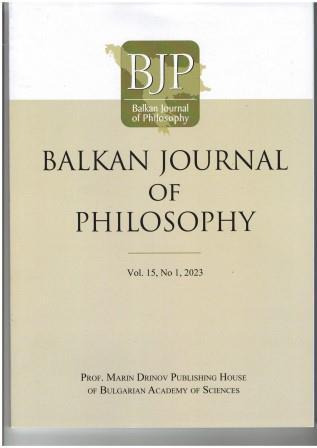Artificial intelligence: Three philosophical interpretations of the anthropocentric frame of reference
Artificial intelligence: Three philosophical interpretations of the anthropocentric frame of reference
Author(s): Hristina AmbarevaSubject(s): Philosophy, Social Sciences, Fine Arts / Performing Arts, Epistemology, Social Philosophy, Special Branches of Philosophy, Sociology, Philosophy of Science, Sociology of the arts, business, education, Sociology of Art
Published by: Институт по философия и социология при БАН
Keywords: AI; anthropocentric frame of reference; philosophy; creativity.
Summary/Abstract: The author discusses the problem of what AI is and how we can understand the “anthropocentrism” of AI from a philosophical point of view. Three interpretations of the relationship between humans and technology are presented: 1) AI-aided human intelligence, based on the extension theory of technology (Stiegler, 1998); 2) human-aided AI intelligence, based on ideas related to political economy (Crawford, 2021); and 3) the relativity of the anthropocentric frame of reference (AFR), based on the taxonomy of species. The purpose of the article is to provide considerations of the three different interpretations of the relation-ship between humans and technology and how they lead to different opportunities to answer the question of how we can understand AI’s creativity.
Journal: Balkan Journal of Philosophy
- Issue Year: XV/2023
- Issue No: 1
- Page Range: 77-84
- Page Count: 8
- Language: English
- Content File-PDF

